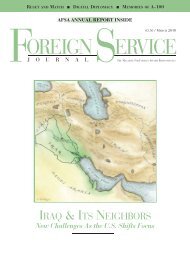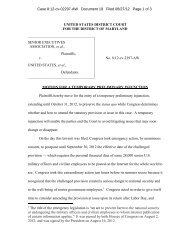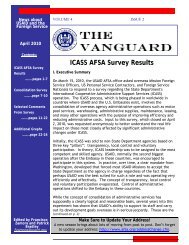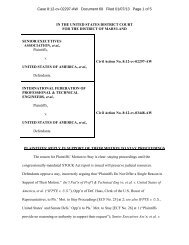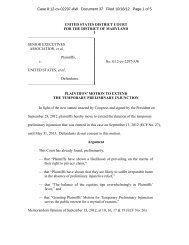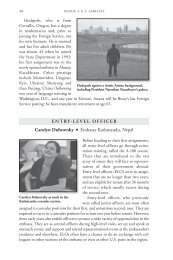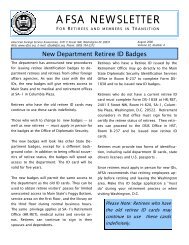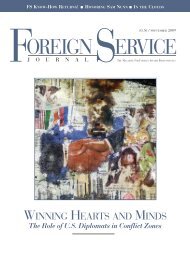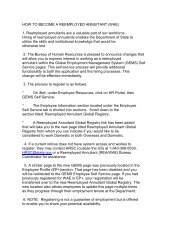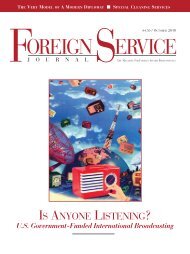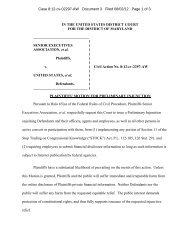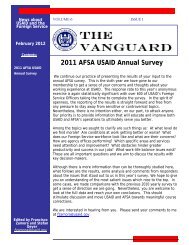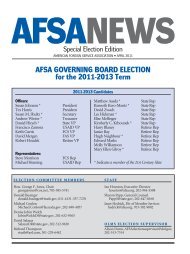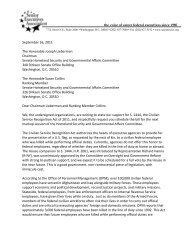F OCUS - American Foreign Service Association
F OCUS - American Foreign Service Association
F OCUS - American Foreign Service Association
Create successful ePaper yourself
Turn your PDF publications into a flip-book with our unique Google optimized e-Paper software.
etween the administration and non-government analysts<br />
that reliance on Pakistani territory as a safe harbor and<br />
recruiting base constitutes a critical advantage for the<br />
Taliban and its allies, though divisions remain over how to<br />
address this problem. Some call for a much stronger U.S.<br />
role, possibly to include assumption of command in southern<br />
Afghanistan, where the Taliban is strongest. There is<br />
also sharp disagreement over how to address Taliban basing<br />
and logistics operations in Pakistan. Proposals range<br />
from assertive U.S./NATO action that is less constrained<br />
by concerns of Pakistani sovereignty to a willingness to<br />
give Islamabad time to negotiate with local leaders in the<br />
Federally Administered Tribal Areas and Swat, a district in<br />
Pakistan’s North West Frontier Province.<br />
There has been much less debate, however, on recommendations<br />
related to the non-security aspects of policy<br />
— namely, development and governance. The attempt to<br />
centralize leadership of economic efforts under a development<br />
czar was generally supported in the international<br />
community but resisted by some Afghans. In any event,<br />
F <strong>OCUS</strong><br />
progress in development and, to a lesser extent, effective<br />
governance remains hostage to progress in improving the<br />
security environment. Ironically, effective governance is<br />
perceived as a matter that falls more exclusively within the<br />
Afghan purview — despite the reality that the central government<br />
functions within a framework created by the<br />
international community at the 2001 Bonn conference.<br />
Forgetting History<br />
While the international community and, in particular,<br />
the U.S., are to be faulted for paying insufficient attention<br />
over the long term to Afghanistan, the troubled nation’s<br />
leaders also bear considerable responsibility for the failures<br />
of recent years. Today, even where the central government<br />
does exercise influence, too often Kabul-appointed<br />
officials are corrupt or incompetent or, in some places,<br />
operate at cross purposes with the government. The police<br />
and judiciary are broadly ineffective and have caused great<br />
popular disaffection. There is no effective civil service<br />
throughout much of Afghanistan; both the Public <strong>Service</strong><br />
JULY-AUGUST 2008/FOREIGN SERVICE JOURNAL 25



